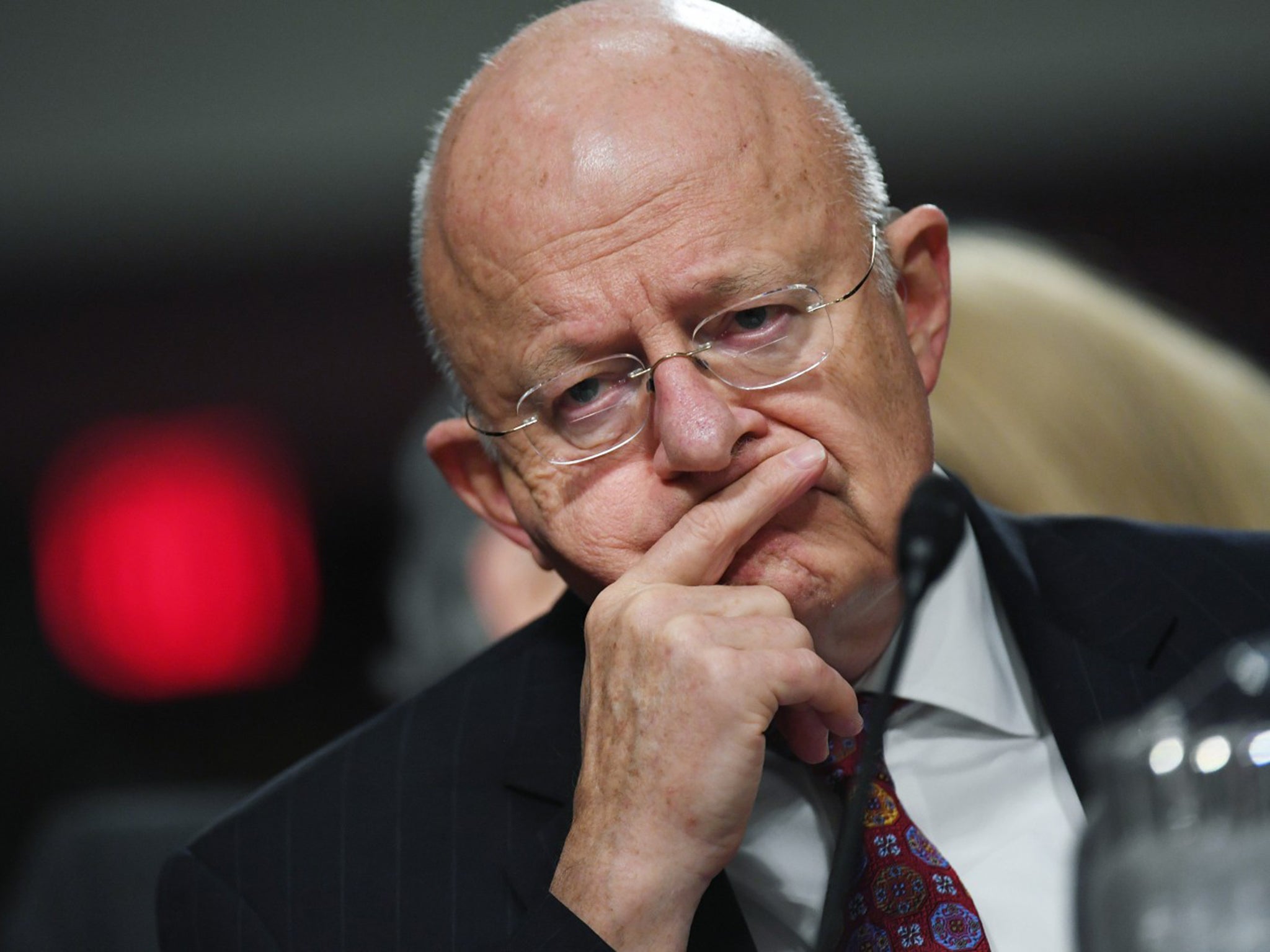US intelligence director James Clapper called Donald Trump about classified Russia memos
The DNI said the document did not originate from the intelligence community

Your support helps us to tell the story
From reproductive rights to climate change to Big Tech, The Independent is on the ground when the story is developing. Whether it's investigating the financials of Elon Musk's pro-Trump PAC or producing our latest documentary, 'The A Word', which shines a light on the American women fighting for reproductive rights, we know how important it is to parse out the facts from the messaging.
At such a critical moment in US history, we need reporters on the ground. Your donation allows us to keep sending journalists to speak to both sides of the story.
The Independent is trusted by Americans across the entire political spectrum. And unlike many other quality news outlets, we choose not to lock Americans out of our reporting and analysis with paywalls. We believe quality journalism should be available to everyone, paid for by those who can afford it.
Your support makes all the difference.Outgoing director of National Intelligence James Clapper issued a statement expressing "profound dismay" over the dossier leak alleging that Russians had compromising personal and financial information against President-elect Donald Trump.
According to explosive reports published this week, intelligence officials appended a two-page synopsis of the allegations to the highly classified document assessing the scope of the alleged Russian hacks of the Democratic National Convention to influence the 2016 election in Mr Trump's favour. The synopsis was delivered to both President Barack Obama and the President-elect.
"This evening, I had the opportunity to speak with President-elect Donald Trump to discuss recent media reports about our briefing last Friday," Mr Clapper said. "I expressed my profound dismay at the leaks that have been appearing in the press, and we both agreed that they are extremely corrosive and damaging to our national security."
The 35-page unverified dossier explained in the two-page appendix alleges that Mr Trump or his surrogates had direct contact with the Kremlin before and during the 2016 election campaign. The unverified report also claims that Russian government actors caught Mr Trump in compromising "perverted sexual acts" involving prostitutes in a Moscow hotel room.
A classified briefing on Russian hacking, given to both President Barack Obama and the President-elect, included allegations that Mr Trump or his surrogates had direct contact with the Kremlin before and during the 2016 election campaign – transactions that allegedly occurred for as many as five years.
Mr Trump has vehemently denied the allegations. He had an outburst directed at CNN reporters and BuzzFeed – the former broke the story of the appendix, the latter published the unverified dossier in its entirety – during his first press conference in 168 days. At the press conference, he said the leak was a "disgrace" that the US intelligence community "allowed any information that turned out to be so false and so fake... That's something that Nazi Germany would have done".
However, Mr Clapper said he reached out to Mr Trump to assure him that the intelligence community played no part in the leaks – but confirmed the initial report that such information did exist and had circulated through the ranking members of Congress, the media, and the intelligence community he oversees.
He continued: "We also discussed the private security company document, which was widely circulated in recent months among the media, members of Congress and Congressional staff even before the IC became aware of it. I emphasised that this document is not a US Intelligence Community product and that I do not believe the leaks came from within the IC."
Mr Clapper added that intelligence officials had not yet determined the reliability of the information in the still unverified document and "we did not rely upon it in any way for our conclusions".
"However, part of our obligation is to ensure that policymakers are provided with the fullest possible picture of any matters that might affect national security."